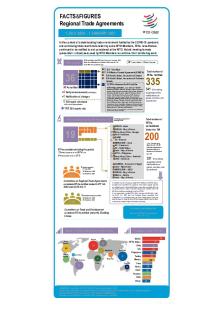Hamlet\'s Soliloquy \"To be or not to be\" PDF

| Title | Hamlet\'s Soliloquy \"To be or not to be\" |
|---|---|
| Course | Shakespeare: Stage and Film |
| Institution | Arizona State University |
| Pages | 1 |
| File Size | 108.2 KB |
| File Type | |
| Total Downloads | 48 |
| Total Views | 160 |
Summary
This is Hamlet's Soliloquy "To be or not to be"...
Description
No Fear Shakespeare – Hamlet (by SparkNotes)
Original Text
-50-
Modern Text
Enter HAMLET HAMLET To be, or not to be? That is the question— Whether ’tis nobler in the mind to suffer The slings and arrows of outrageous fortune, 60 Or to take arms against a sea of troubles, And, by opposing, end them? To die, to sleep— No more—and by a sleep to say we end The heartache and the thousand natural shocks That flesh is heir to—’tis a consummation 65 Devoutly to be wished! To die, to sleep. To sleep, perchance to dream—ay, there’s the rub, For in that sleep of death what dreams may come When we have shuffled off this mortal coil, Must give us pause. There’s the respect 70 That makes calamity of so long life.
HAMLET enters. HAMLET The question is: is it better to be alive or dead? Is it nobler to put up with all the nasty things that luck throws your way, or to fight against all those troubles by simply putting an end to them once and for all? Dying, sleeping—that’s all dying is—a sleep that ends all the heartache and shocks that life on earth gives us—that’s an achievement to wish for. To die, to sleep—to sleep, maybe to dream. Ah, but there’s the catch: in death’s sleep who knows what kind of dreams might come, after we’ve put the noise and commotion of life behind us. That’s certainly something to worry about. That’s the consideration that makes us stretch out our sufferings so long.
Act 3, Scene 1, Page 4 For who would bear the whips and scorns of time, Th' oppressor’s wrong, the proud man’s contumely, The pangs of despised love, the law’s delay, The insolence of office, and the spurns 75 That patient merit of th' unworthy takes, When he himself might his quietus make With a bare bodkin? Who would fardels bear, To grunt and sweat under a weary life, But that the dread of something after death, 80 The undiscovered country from whose bourn No traveler returns, puzzles the will And makes us rather bear those ills we have Than fly to others that we know not of? Thus conscience does make cowards of us all, 85 And thus the native hue of resolution Is sicklied o'er with the pale cast of thought, And enterprises of great pith and moment With this regard their currents turn awry, And lose the name of action.
After all, who would put up with all life’s humiliations—the abuse from superiors, the insults of arrogant men, the pangs of unrequited love, the inefficiency of the legal system, the rudeness of people in office, and the mistreatment good people have to take from bad—when you could simply take out your knife and call it quits? Who would choose to grunt and sweat through an exhausting life, unless they were afraid of something dreadful after death, the undiscovered country from which no visitor returns, which we wonder about without getting any answers from and which makes us stick to the evils we know rather than rush off to seek the ones we don’t? Fear of death makes us all cowards, and our natural boldness becomes weak with too much thinking. Actions that should be carried out at once get misdirected, and stop being actions at all....
Similar Free PDFs

To be - There be
- 4 Pages

to be advised later
- 1 Pages

Verbo To Be e Verbo There To Be
- 2 Pages

VERBO TO BE
- 1 Pages

El verbo \"to be\"
- 2 Pages

BE Going TO - schemi
- 1 Pages

To Tinder or not to Tinder
- 6 Pages

Reasons to Be Pretty Summary
- 3 Pages
Popular Institutions
- Tinajero National High School - Annex
- Politeknik Caltex Riau
- Yokohama City University
- SGT University
- University of Al-Qadisiyah
- Divine Word College of Vigan
- Techniek College Rotterdam
- Universidade de Santiago
- Universiti Teknologi MARA Cawangan Johor Kampus Pasir Gudang
- Poltekkes Kemenkes Yogyakarta
- Baguio City National High School
- Colegio san marcos
- preparatoria uno
- Centro de Bachillerato Tecnológico Industrial y de Servicios No. 107
- Dalian Maritime University
- Quang Trung Secondary School
- Colegio Tecnológico en Informática
- Corporación Regional de Educación Superior
- Grupo CEDVA
- Dar Al Uloom University
- Centro de Estudios Preuniversitarios de la Universidad Nacional de Ingeniería
- 上智大学
- Aakash International School, Nuna Majara
- San Felipe Neri Catholic School
- Kang Chiao International School - New Taipei City
- Misamis Occidental National High School
- Institución Educativa Escuela Normal Juan Ladrilleros
- Kolehiyo ng Pantukan
- Batanes State College
- Instituto Continental
- Sekolah Menengah Kejuruan Kesehatan Kaltara (Tarakan)
- Colegio de La Inmaculada Concepcion - Cebu







